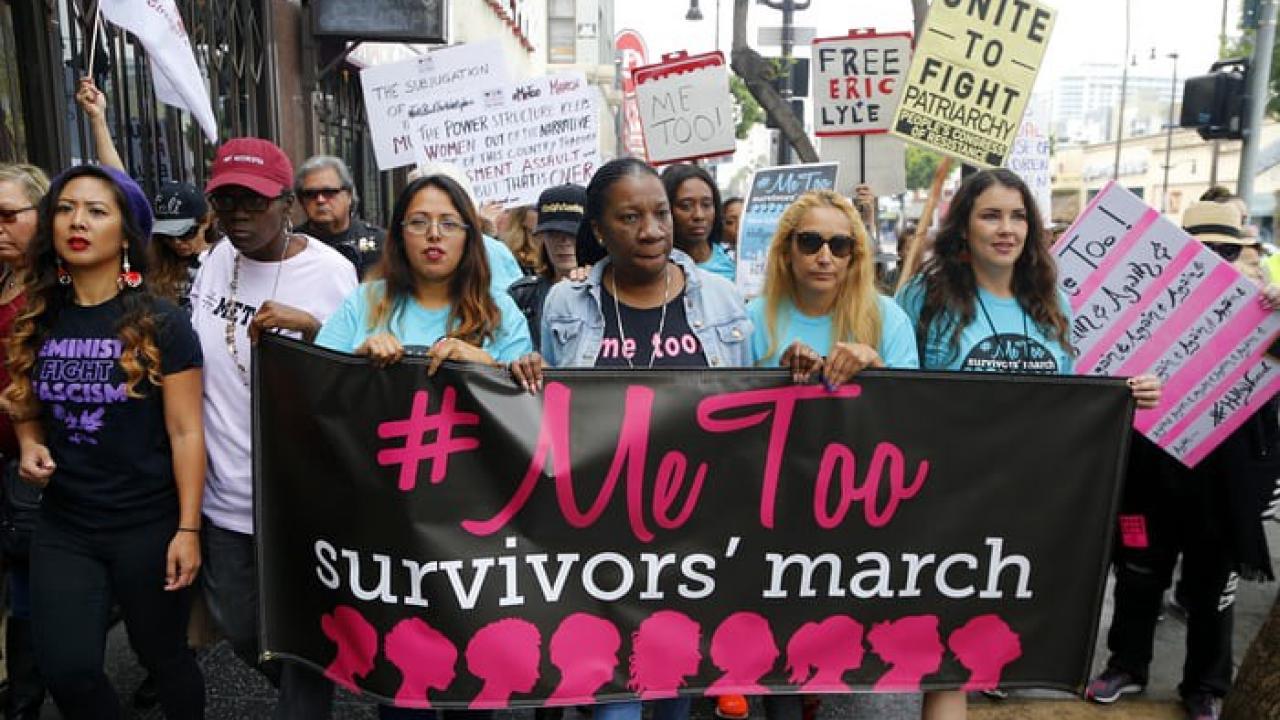
The Political Impact of #MeToo
Whether it’s politicians, entertainment moguls, or sports coaches, no industry is immune to the perils of sexual harassment. High profile men, such as entertainment magnate Harvey Weinstein, RNC Finance Chair Steve Wynn, and White House Aide Rob Porter, have lost their jobs due to sexual assault and abuse allegations. The #MeToo movement has encouraged a wave of women to share their sexual harassment experiences and confront men who have behaved inappropriately. The media has been filled with coverage, including Larry Nasser’s trial, and the Hollywood award shows have been public platforms for the biggest celebrities to call for change. Consequently, men in power are being forced to step down from their positions. According to one study, at least 40 lawmakers across 20 states have been accused of sexual misconduct or harassment.
In our recent national survey of 1,000 adults, we asked how people are feeling about the handling of sexual harassment and domestic abuse allegations. Interestingly, but maybe not surprisingly, there is no apparent consensus among Americans when it comes to whether these allegations and the consequential firings are a step in the right direction for women’s rights or if the allegations are ruining lives without giving the proper due process. Indeed, 45% of Americans believe the resignations and legal actions in response to the movement show significant progress in women’s rights, 35% believe the allegations are being handled as guilty verdicts without the accused being given the right of due process, and 20% are unsure...
To read the full article by Stefan Hankin, visit Medium.com